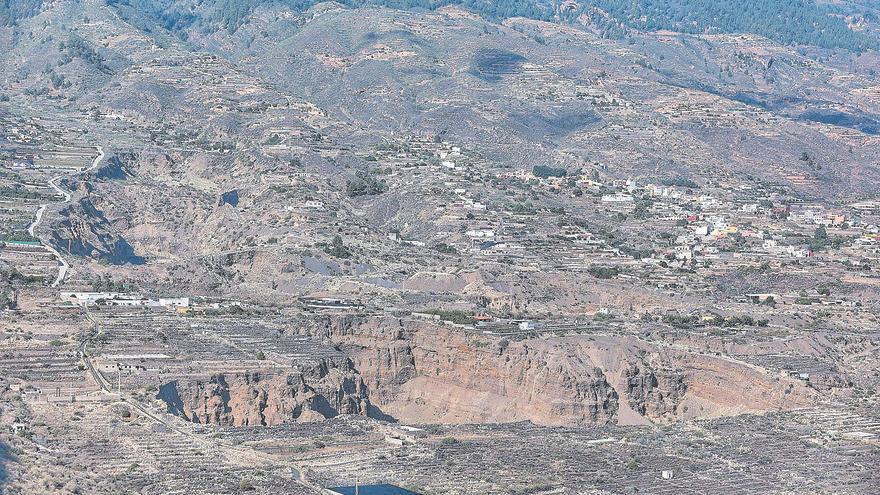
The mayor of Güímar, Gustavo Pérez, is in favor of take advantage of the quarries created with the illegal activity of aggregate extraction in the ravines of the municipality to build the hydroelectric plant. While waiting to know the final project to issue a statement, he maintains that “the Island needs a large electrical infrastructure given the weakness of the current system and the energy emergency declared by the Council of Government of the Canary Islands last October 2. Placing it in these holes is a good option.
Gustavo Pérez is cautious about the lack of a definitive project, taking into account that, in addition, there are two options on the table to develop this infrastructure. What is known is which quarries will be used for the hydroelectric plant, “but not where the waterfall will be located,” he adds.
Councilor Güimarero warns that the actions planned in the Badajoz, Los Ríos, Guirres and Guaza or Fregenal ravines They must take into account and serve as a solution to the important problems that the roads and farms in production – of avocado, banana and grapes, above all – register. Damage caused both during the almost 40 years of aggregate extraction activity and afterwards, “because erosion continues” in a land where there are five quarries whose depth is close to 100 meters, in most cases.
But it is not the only aspect that any work carried out in the area must take into account. Gustavo Pérez claims that it also serves to solve the channeling of these four ravines “given the danger derived from possible runoff and floods.”
The mayor claims that “any project must count on the Güímar City Council, the municipality that has suffered and is suffering the consequences of supplying the Island with the aggregate necessary for almost all private and public works carried out during the last 40 years. The sentence must be fulfilled and Güímar must be the recipient of its benefits.
He location of the hydroelectric plant of Tenerife is cleared after the ruling of the Criminal Chamber of the Supreme Court that, on November 16, dismissed the appeals of the businessmen who extracted aggregate illegally and sentenced them to pay 185 million euros to restore the damage caused in Güímar for the illegal extraction of aggregates. The ruling also confirmed that the Government of Canary Islands and the Tenerife Council They are the administrations that will collect the compensation.
Waiting
The president of the Cabildo of TenerifeRosa Dávila assures that “nothing has been decided” about the future use of these quarries, but admits that one of the options is to build a pumped hydroelectric plant. “It is not about what the Council would like to do” but rather about “carefully analyzing the ruling” of the Supreme Court.
Aware that the Cabildo and the Government of the Canary Islands are the beneficiaries of the compensation and that the Supreme Court ruling “clearly states” that the environmental recovery of the surroundings of the Güímar ravines must be promoted, he knows that “work has been going on for some time” on building a hydraulic pumping project that will help with electrical stabilization of the Island through renewable energies.
Before him electrical «deficit» that Tenerife suffers, Rosa Dávila understands that “it is very important” that projects are developed “that allow storage and that energy is not lost.” For this reason, she announces that the legal services of the Cabildo are studying the sentence to, within a couple of weeks, hold a meeting with the Minister of Ecological Transition of the Government of the Canary IslandsMariano Hernández, and start making decisions.
On January 28, 2016 and after an agreement with the Prosecutor’s Office, businessmen Antonio Plasencia, José Enrique Morales and Pedro Sicilia were sentenced for crimes against natural resources and the environment to restore the damage caused by their companies through the execution of restoration plans, which the justice system considered insufficient and unexecutable, for which they now must pay.
















